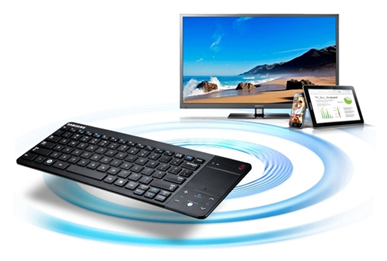by Ralph Eck | Dec 04, 2013
 Throughout the previous articles in this series, we’ve taken a look at the major emerging technologies on the market today through the prism of the Nexus of Forces. Social, Information, and Cloud are changing the way we live, work, and interact in society on many, many levels. Let’s now turn to the final element in the Nexus known as Mobile and to see how it’s transforming the world of business and quickly becoming the new PC of choice.
Throughout the previous articles in this series, we’ve taken a look at the major emerging technologies on the market today through the prism of the Nexus of Forces. Social, Information, and Cloud are changing the way we live, work, and interact in society on many, many levels. Let’s now turn to the final element in the Nexus known as Mobile and to see how it’s transforming the world of business and quickly becoming the new PC of choice.
Mobile is the New PC
Anywhere you go today – on the subway, at work, on the streets – people are using mobile devices of all shapes and sizes, smartphones, tablets, mini-tablets – you name it! This is a significant development because it also highlights the end of the desktop era. Global sales of PCs have decreased annually several years in a row now as mobile has increased exponentially. And an oft-repeated statistic is that sometime this year, if not already, there will be more Internet-enabled mobile devices than desktop computers.
The mobile age has also spawned a transformation in the global work force. One of the signal effects of the “Consumerization of IT” over the past several years has been that employees are increasingly likely to use popular technologies and devices at home (not to mention online services, databases, and social networking) and then introduce those devices into the workplace. The rise in BYOD (Bring Your Own Devices) throughout businesses over the last several years is one result of this phenomenon and reflects a trend that many companies – whether they like it or not! – have begun to recognize and adopt.
What’s even more, the mobile revolution is now leading a trend towards lighter, smaller, and faster devices that can connect seamlessly to other peripherals and workstations. Imagine for a moment the impact of taking your Samsung Galaxy smartphone and connecting it to a full-size keyboard, mouse, and external drive to convert it into a complete mobile office. With a wireless hub you can easily hook up a wireless keyboard and share your mobile phone screen on your HDTV or HDMI-compatible display.
The smartphone enabled-office will soon become the hallmark of the new digital enterprise. If they haven’t done so already, IT business leaders must quickly come to terms with this new reality and urgently develop effective strategies to prepare for the mobile office.
To be successful in today’s competitive market, business leaders must have a clear mobile strategy that will provide growth and value to the company. Let’s continue the discussion by highlighting a few things CIOs and CTOs can do right now to start incorporating mobility into their enterprise.
Kick Starting Your Mobile Business Strategy
CIOs and CTOs who haven’t yet adopted a mobile strategy are definitely late to the game. As with Cloud, business leaders may have concerns about security or cost efficiency, but they cannot afford to let these concerns be showstoppers. Given the global mobile commerce phenomenon and the rapid increase in mobile payments worldwide, business leaders need to seriously consider the price of failing to adopt mobility.
Business leaders can proactively adopt a holistic mobile strategy by first clarifying their approach to the employee use of personal devices. It’s a challenge to balance employee needs for agility and flexibility with the company need for security, but BYOD clarification is the starting point for any kind of mobile adoption.
Another important task is to address the infrastructure and architecture changes required for mobility by adopting a robust mobile management device platform. There are a number of top MDM solutions on the market such as AirWatch and MobileIron that enable the rollout of an efficient, secure, and scalable BYOD strategy across the enterprise.
A third point is to understand critical user segments within an enterprise and work with those users to understand their business needs and how mobility can help them create more value for the company. Also, it’s important to understand your external mobile traffic; review your website analytics to discover how many people are currently accessing your company website from mobile devices and what kind of devices they use.
Lastly, after accessing user needs – both internally and externally – business leaders will want to take active steps to begin to integrate mobility into the enterprise. Start by adopting steps to redesign for all devices first, by adopting the latest HTML5 standards and then second, by using responsive design to create a website that can be rendered no matter the layout, text size, or size of images. Also, it will be crucial to start an application roadmap to roll out mobile services to meet the needs of your end user community and provide value for your business strategy. Mobile apps have become major business drivers and so to have a company app present in the Apple store is a major market differentiator.
In the next part of this series we will finalize our discussion with some key takeaways on what we have covered, along with emphasis on how adoption of the Nexus of Forces helps drive business growth and success.
Category: Articles | Tagged No Comments.









